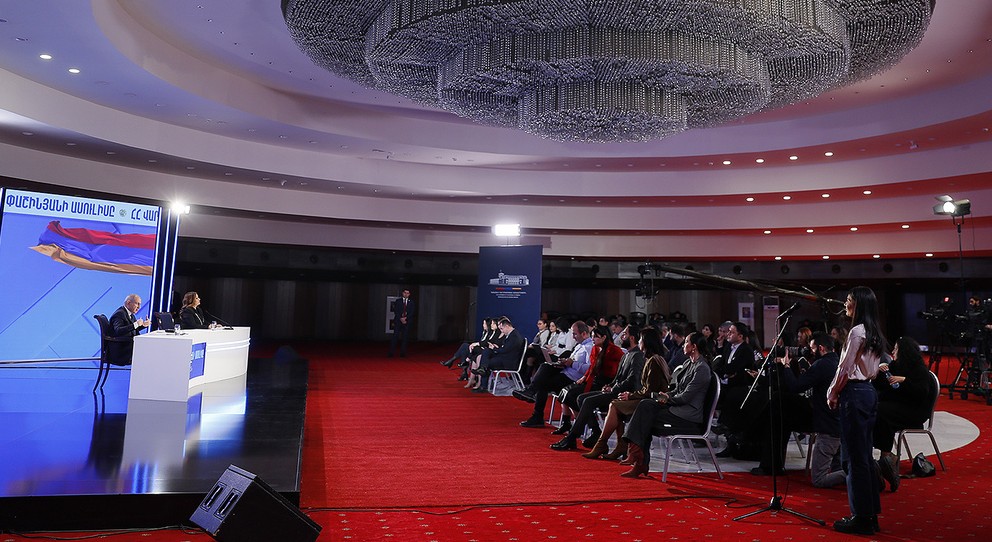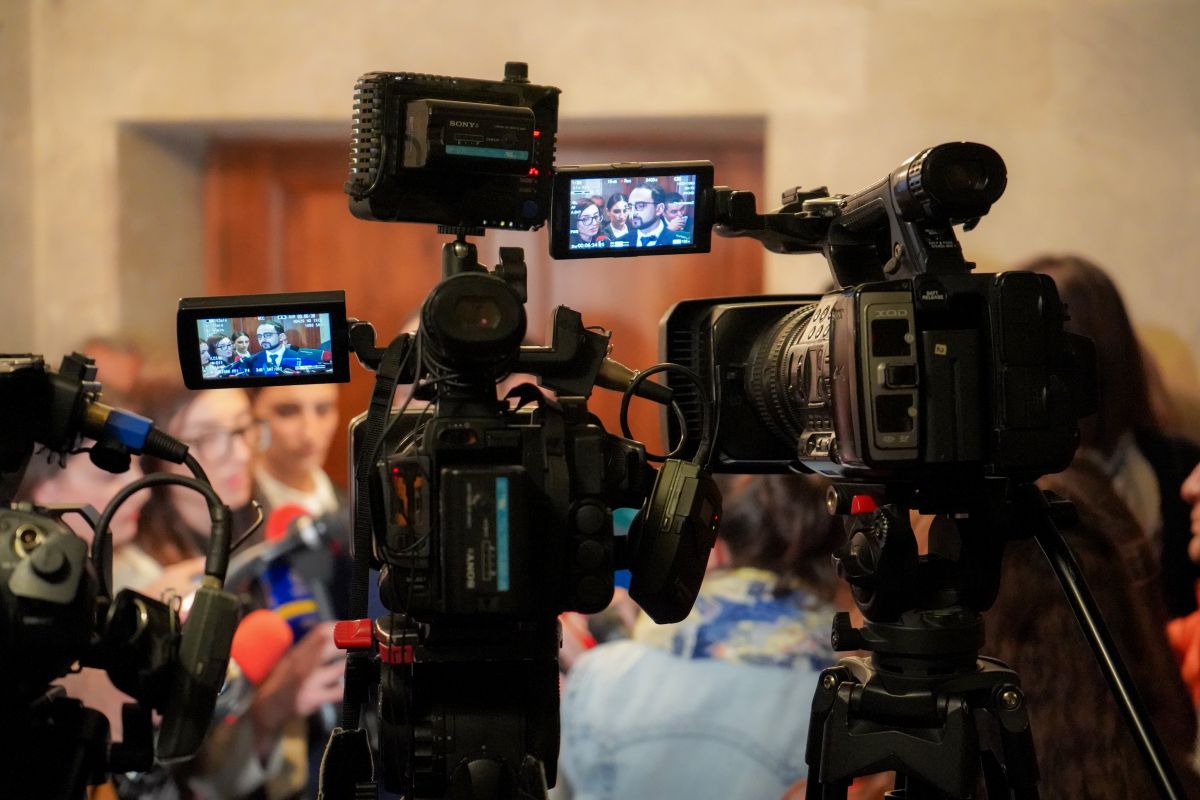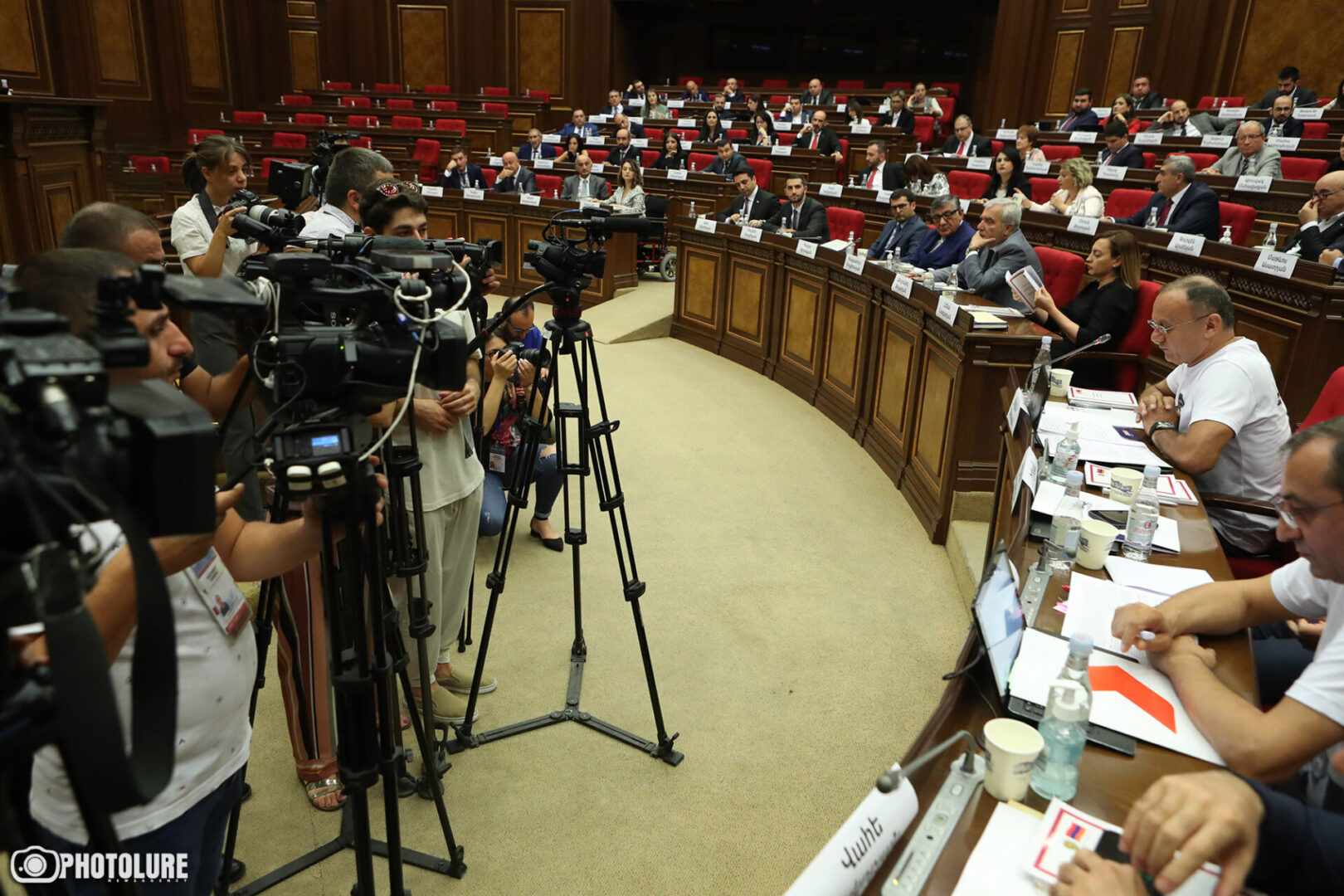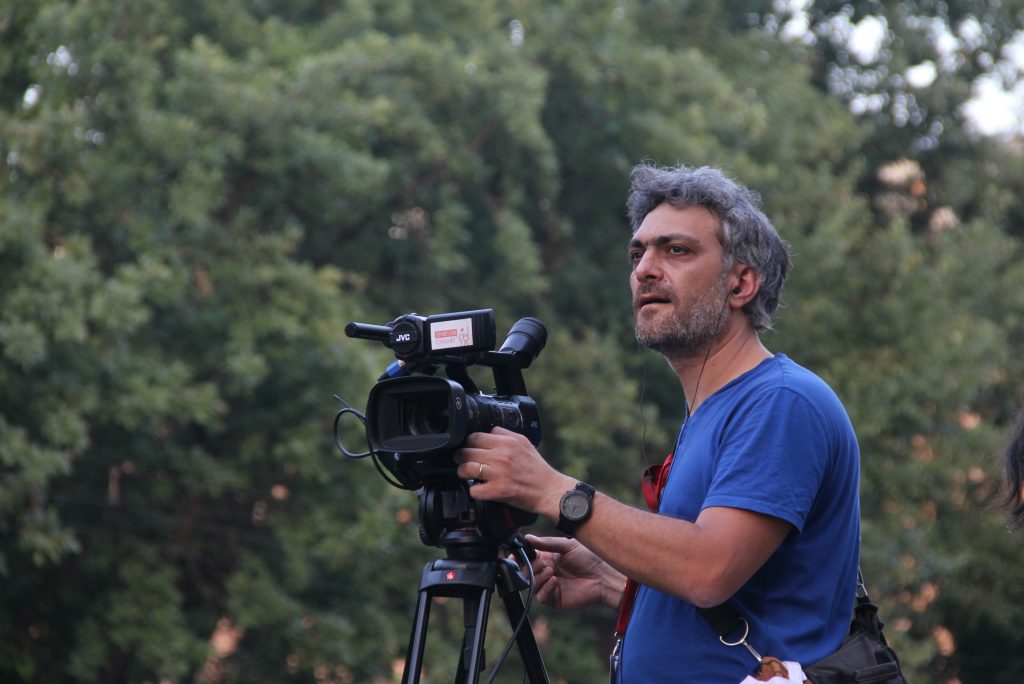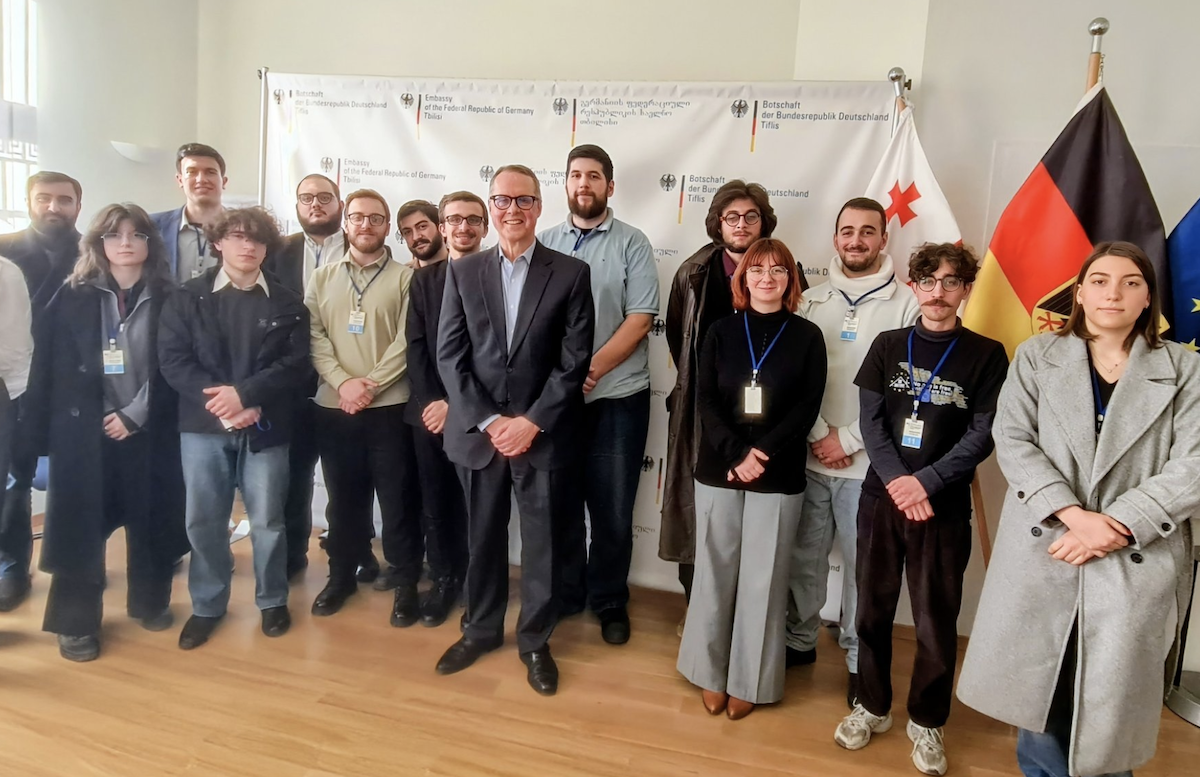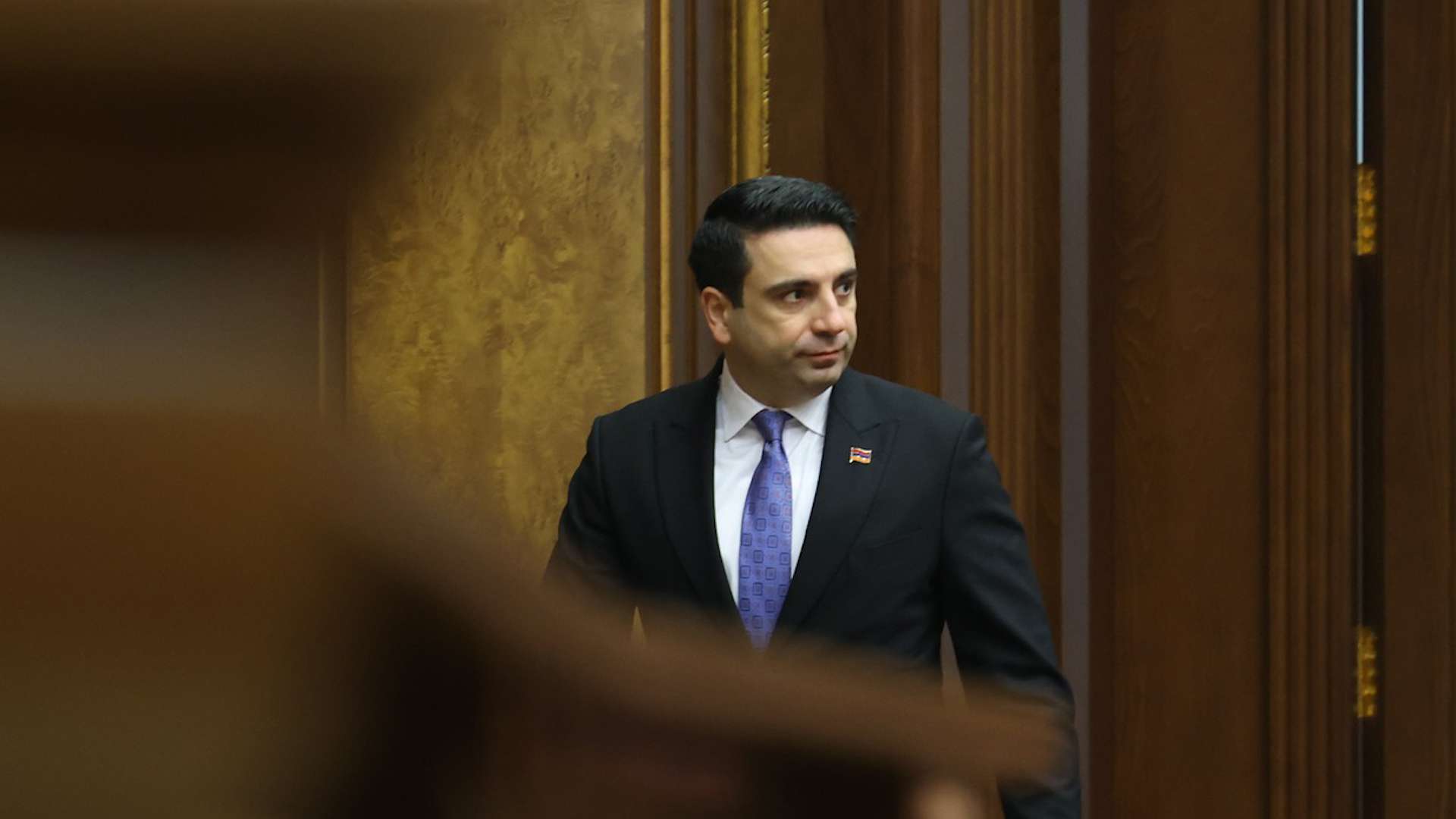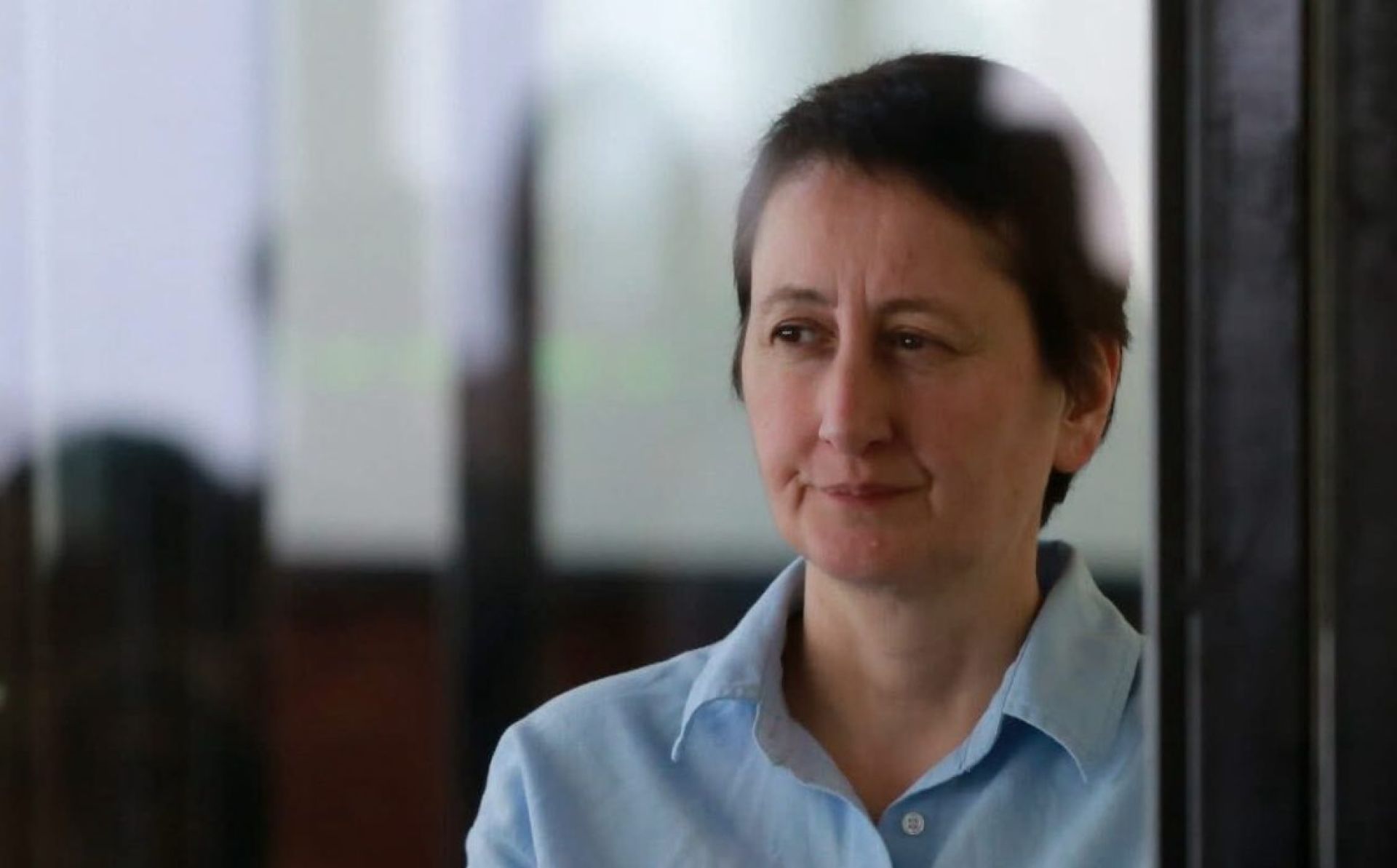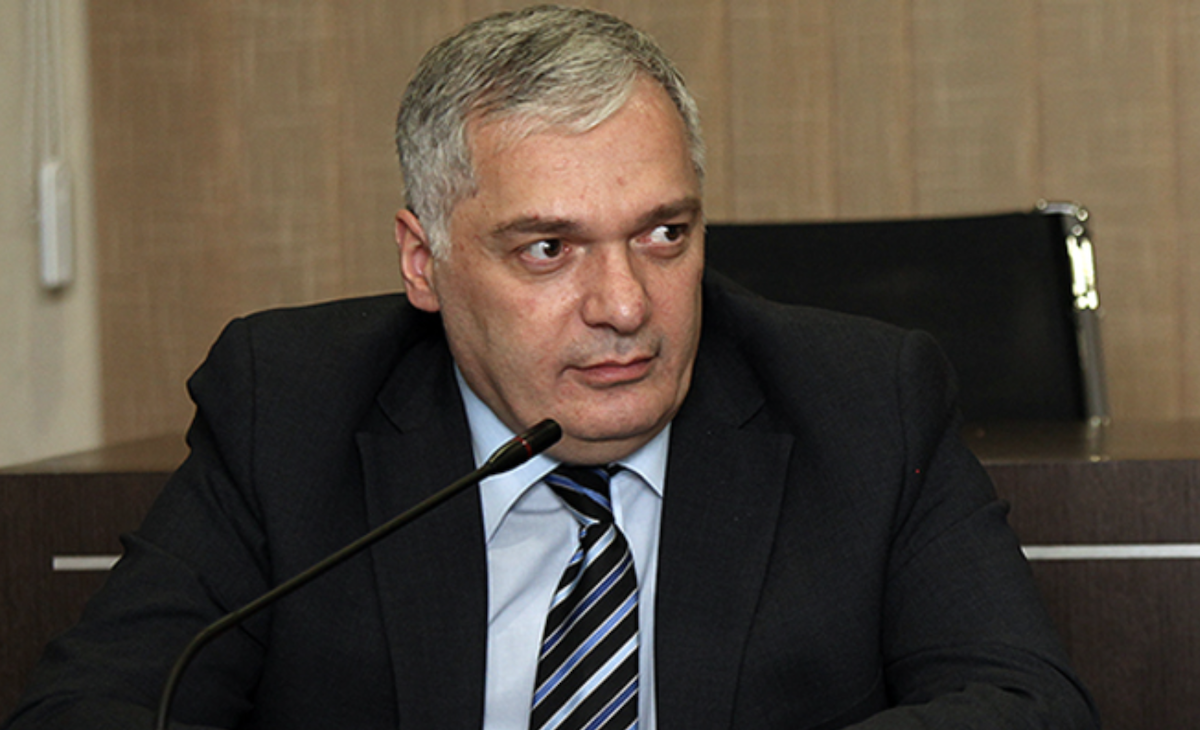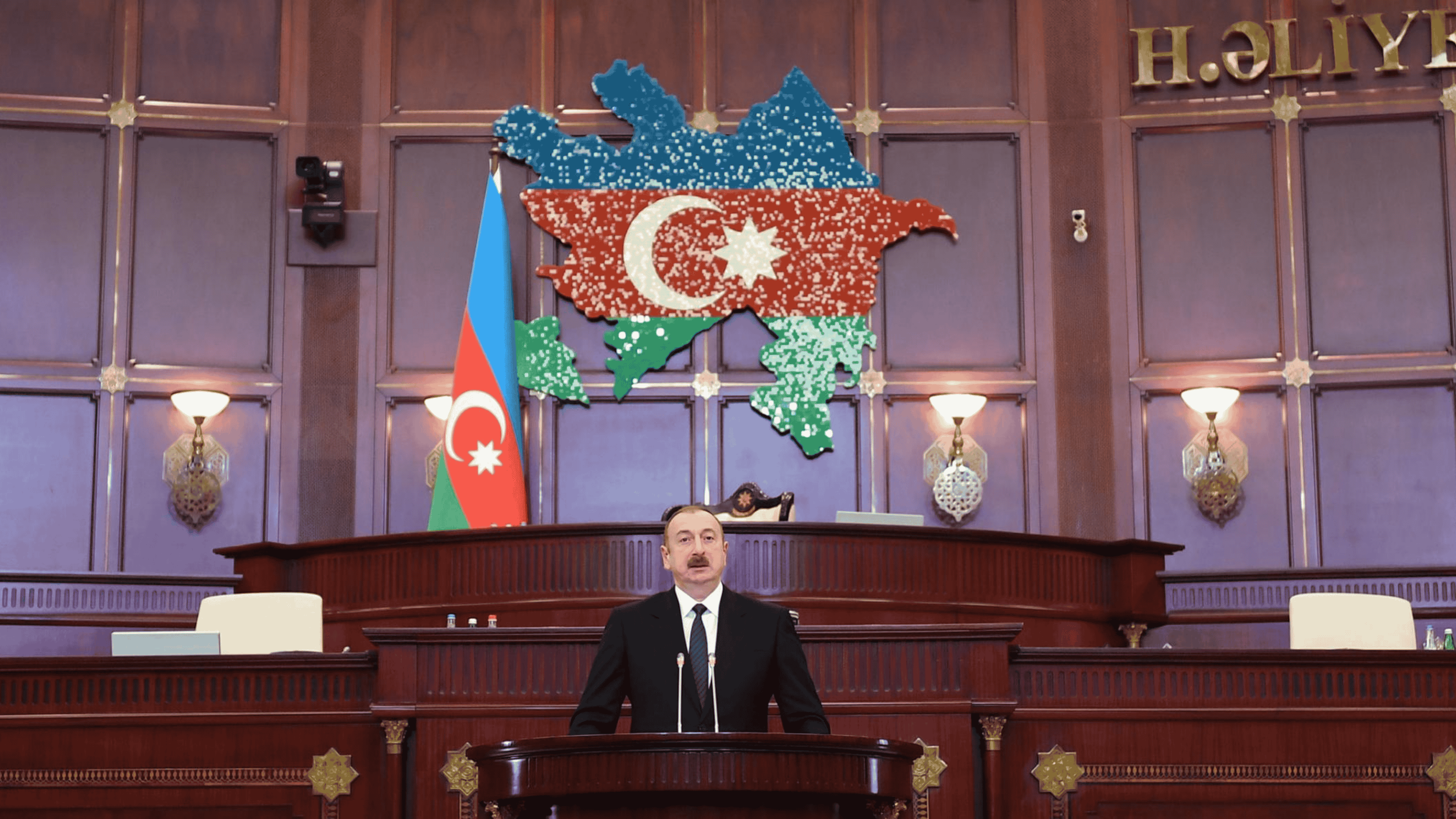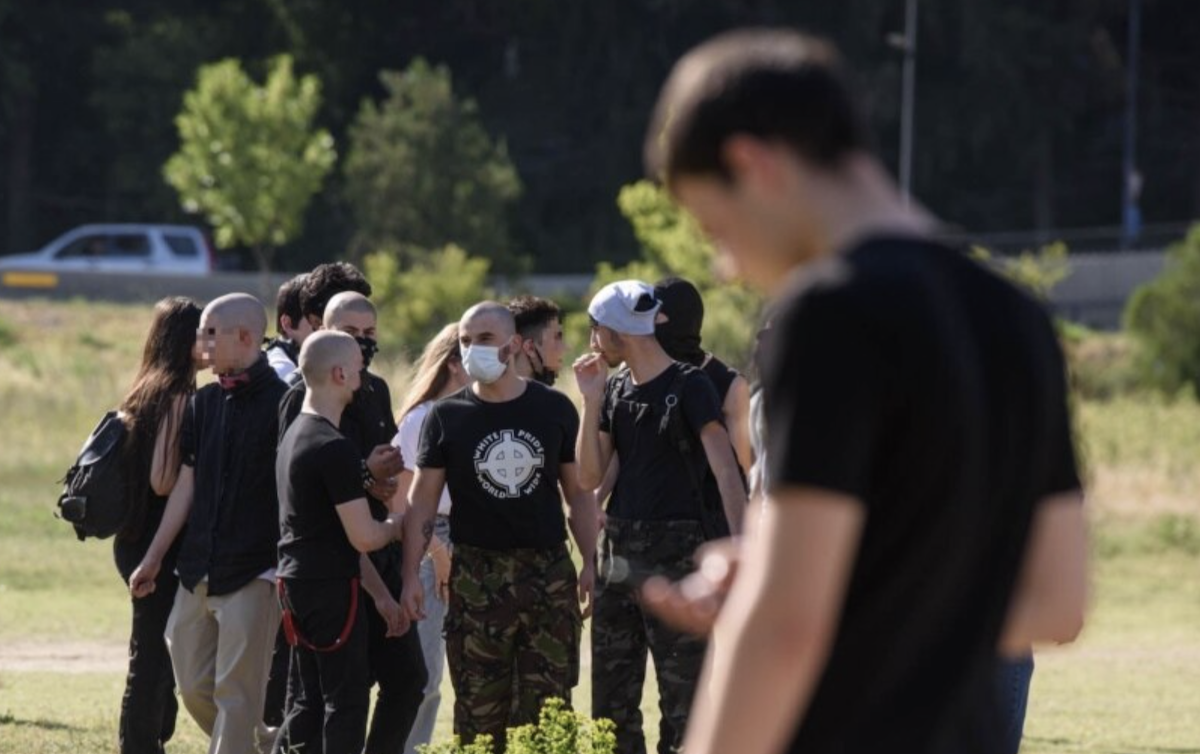Armenian parliament declines to address MP’s insult to journalist
Parliamentary ethics in Armenia’s National Assembly
Armenia’s parliamentary majority has rejected an opposition proposal to form a temporary ethics committee and to discuss the conduct of MP Andranik Kocharyan. The initiative was put forward by both opposition factions — “Hayastan” and “I Have Honour”.
In March, Andranik Kocharyan, an MP from the ruling faction and chair of the parliamentary defence and security committee, told journalist Ripsime Dzhebedzhyan to “stay away” from him and to “wipe her lips”. He warned that otherwise he would refuse to give a briefing — meaning he would not respond to any journalists’ questions.
Opposition MPs said he had shown disrespect and discriminated against the journalist.
Journalist organisations also condemned Kocharyan’s behaviour:
“The failure to assess Andranik Kocharyan’s indecent conduct and the refusal to even set up an ethics committee to review the matter show that the ruling majority sees nothing unusual in such incidents. They consider insulting journalists acceptable and are effectively giving the green light to such behaviour.”
- 10 deaths in 4 months: rights activists alarmed by prison conditions in Armenia
- ‘Gyumri — foothold of counterrevolution’: opposition candidate elected mayor of Armenia’s second-largest city
- Three times more domestic violence cases in Armenia last year — Prosecutor General’s report
‘Shame’ – protest in parliament
While MPs debated the proposal to set up a temporary ethics committee, journalists held a protest. Near the entrance to the chamber, they strung up posters on a clothesline. The signs read “Shame” and “Be very careful with journalists”. One of them featured a photo of Andranik Kocharyan, alongside the caption: “Andranik Kocharyan, wipe your lips.”
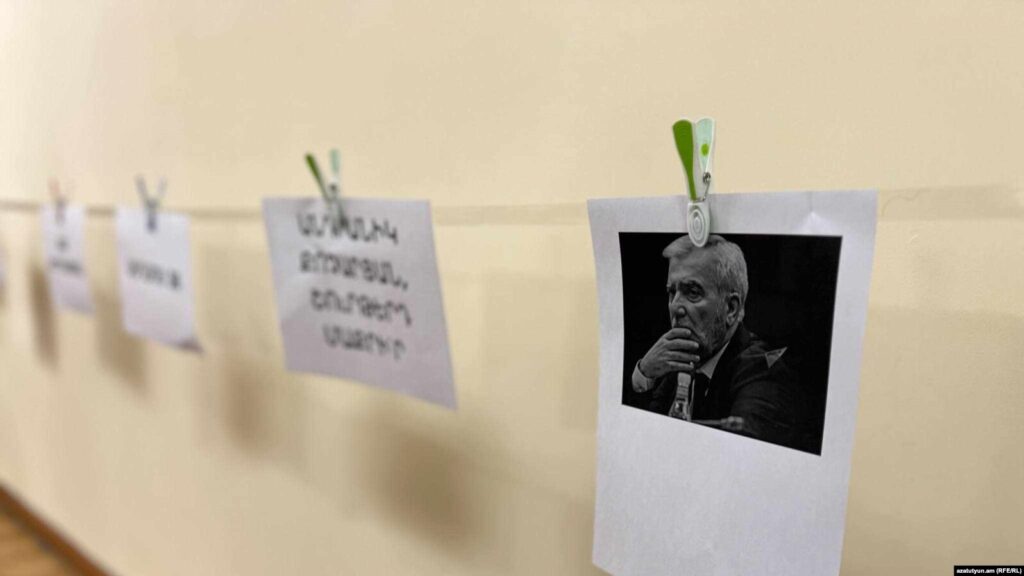
The incident itself took place a month and a half ago. However, the MP has shown no intention of apologising.
“I repeated the words of a well-known clergyman, who said it in even harsher terms. He said, ‘rinse your mouth’. I said nothing offensive — I was speaking about the purity of speech,” Kocharyan claimed.
He continues to insist on this version of events. To those who reject his explanation, he replies:
“If you understood it the wrong way, that’s because everyone sees things through the lens of their own depravity.”
The expression “rinse your mouth” was first used by Archbishop Bagrat Galstanyan, who led an opposition movement demanding the government’s resignation. He said it to Ripsime Dzhebedzhyan after she mentioned the name of a supporter of the ruling party. The clergyman later apologised.
“She named devils aloud — that’s why I said it,” he explained.
Ripsime Dzhebedzhyan has been holding regular protests demanding accountability for the MP’s conduct. She also submitted a letter to Prime Minister Nikol Pashinyan, signed by more than 160 journalists, calling for a formal response.
MP is obliged to treat journalists with respect”
The opposition’s proposal was to establish a temporary five-member ethics committee. Its task would have been to investigate the incident and assess Andranik Kocharyan’s conduct. The opposition suggested giving the committee a maximum of two months to carry out the inquiry, stating that their goal was to prevent such incidents from happening again.
The proposal was presented in parliament by MP Taguhi Tovmasyan:
“The law on the activities of a deputy states that an MP is obliged to observe moral standards and show respect towards political opponents, participants in parliamentary discussions, journalists, and all persons they interact with while carrying out their duties.”
Tovmasyan also stressed that the provisions of the Law on Mass Media prohibit obstructing the professional work of journalists.
According to the Rules of Procedure of the National Assembly, MPs are required to adhere to the principles of parliamentary ethics. These eight principles are set out in a separate law — “On the Guarantees of the Activities of an MP of the National Assembly”. They stipulate that an MP must not only show respect towards journalists, but also uphold society’s moral standards. Moreover, MPs must, through their actions, help foster public trust and respect for parliament.
“Establishing ethics committee may create new problems”
According to Alkhas Ghazaryan, an MP from the ruling “Civil Contract” faction, setting up a temporary ethics committee could hinder the formation of a permanent one. He argued that such a body would not enable productive or balanced discussions, as this kind of issue must be reviewed with the involvement of all factions. A temporary committee dominated by the ruling majority, he said, could discredit the process:
“Our position is clear: this proposal does not offer a comprehensive solution. Moreover, it could create new problems. Such a committee would not be functional, as the majority would once again prevail, creating unequal conditions.”
Ghazaryan said that the process of forming a permanent ethics committee in parliament has already begun. It was initiated by the “Civil Contract” faction. The aim, he noted, is to create an institutional mechanism that “will demonstrate an objective and fair approach to issues concerning the conduct of MPs, regardless of party affiliation.”
Journalists urge parliament to lead fight against indecent behaviour
In response to the incident, several respected journalist organisations issued a joint statement. They declared that the behaviour of the parliamentary majority “gives the green light to such incidents”. They also suggested that this may be why clashes between MPs and journalists have become more frequent in recent times.
The signatory organisations believe that in Armenia’s polarised society, the fight against indecent conduct must begin in parliament.
They reminded politicians that although they often complain about a climate of intolerance, they themselves fail to take steps to overcome it — including the refusal to establish a special ethics committee.










